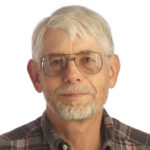http://www.clark.wa.gov/planning/aging/taskforce.html
If Clark County can help its ever-growing elderly population stay healthy over the coming decades, it can pay off for everybody in the community.
That was one of the messages Thursday afternoon from Dr. Howard Frumkin, dean of public health at the University of Washington.
Frumkin discussed creating healthier communities during a workshop held by the county’s Aging Readiness Task Force. The task force was appointed to assess the county’s capacity to serve a growing number of older people.
“I’m interested in helping people stay as self-sufficient as they can,” said Vancouver resident Erica Kelley, one of 25 members. “I enjoy good health myself, so I’m one of the fortunate people. I can pay it back a bit.”
Clark County is doing a good job of getting ahead of that curve, Frumkin said just before his presentation in the Vancouver Barracks Red Cross Building.
“This is innovative,” he said.
Very few areas are applying the concept of preparedness, usually the realm of emergency response, to long-term population trends such as graying populations, Frumkin said.
But it is important to consider how aspects of the built environment — “people habitat” is another way he referred to it — can be a factor in longer and healthier lives. That’s because more of us are living longer.
In 1900, Frumkin said, 10 percent of the U.S. population was 55 or older; in 2050, almost one-third of the population will be 55 or older.
Their quality of life isn’t just a matter for Medicare, said John Wiesman, director of Clark County Public Health. Medical care constitutes about 10 percent of what makes us healthy, Wiesman said as he introduced Frumkin.
Things that we plan and design — including housing, neighborhoods, parks and transportation systems — influence public health, Frumkin said.
The former federal health official cited several studies from around the world: Researchers in Japan tracked a group of elderly people, charting death rates against neighborhood amenities such as parks, green spaces and tree-lined streets. The higher the walker-friendly score, the lower the death rate, said Frumkin.
Researchers in Indianapolis used satellite photography to measure the city’s tree canopy. The greener the neighborhood, the slower the weight gain for children who lived there, Frumkin said.
Those principles can be designed into a community, said Frumkin, former director of the center for environmental health at the U.S. Centers for Disease Control and Prevention.
You also can consider a transportation system that offers more than the choice of driving or staying home.
And these concepts can make a healthier community for everybody, Frumkin said.
“It’s not just about the elderly,” he said. “There are multiple benefits.”
When Atlanta officials reduced traffic by 23 percent because of the 1996 Olympics, the rates of asthma among local children dropped by 11 percent to 44 percent, depending on the study you read. When the Olympics were over, traffic and asthma both returned to their previous rates.
“In a nation with pressing health problems, in an aging nation, we can and must build safe and healthy communities for all of us,” Frumkin said.
Thursday’s meeting will help shape that process in this area.
“There is a ‘health’ chapter in the works in the comprehensive growth management plan,” Wiesman said. “We will have a draft of that chapter by the end of the year.”
Eventually, those recommendations will become part of the planning process.
“As we plan transportation, housing, road standards and parks, these will be meaningful,” said Clark County Commissioner Marc Boldt.
Tom Vogt: 360-735-4558 or tom.vogt@columbian.com.



